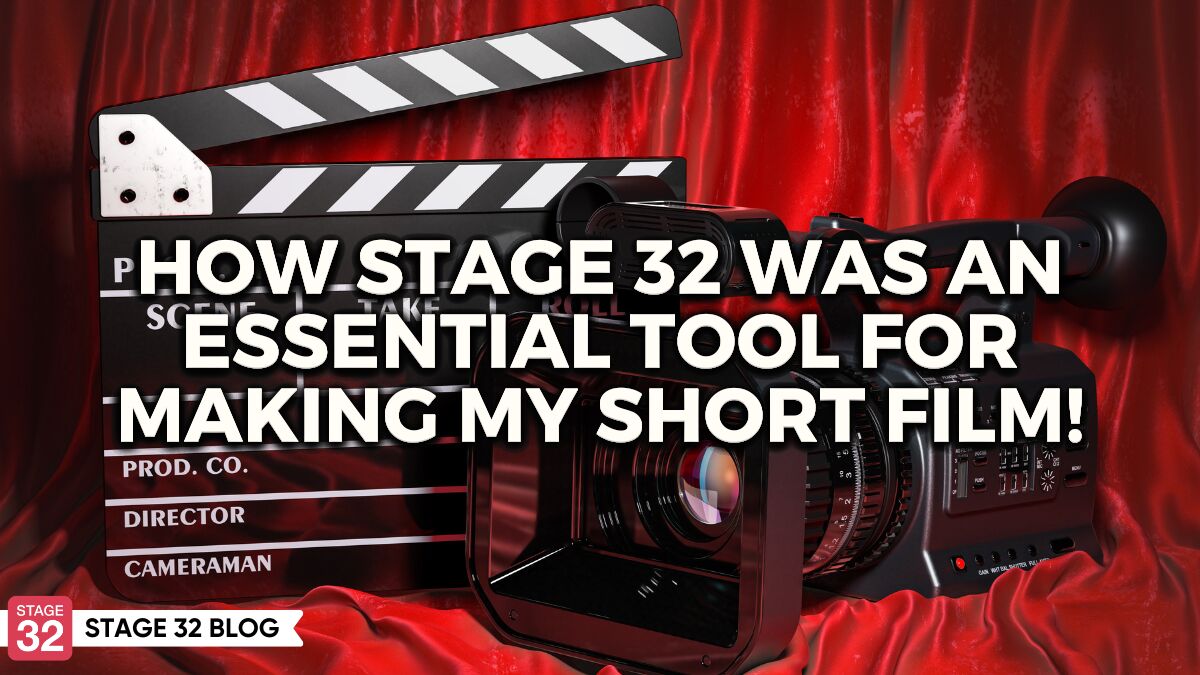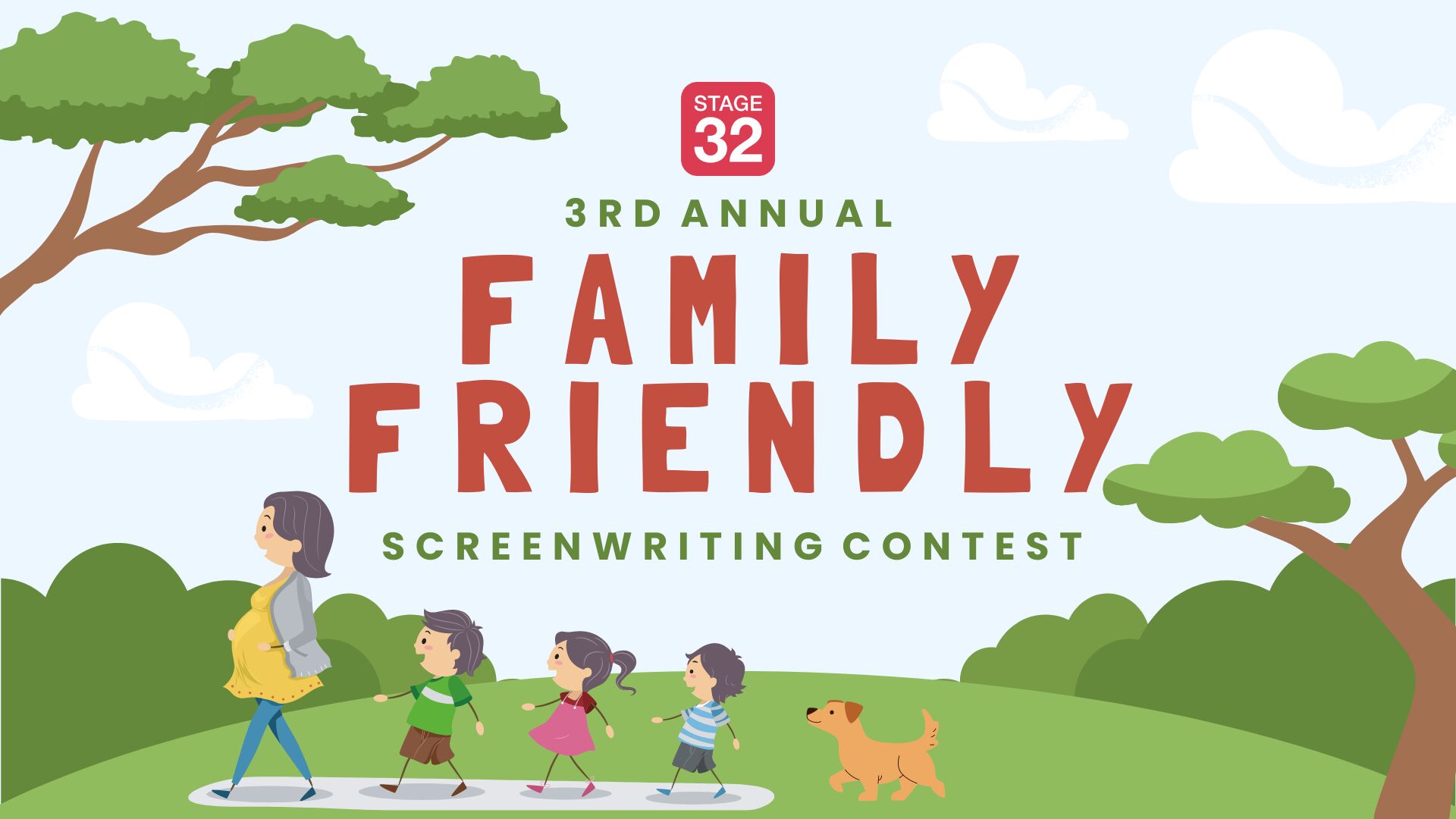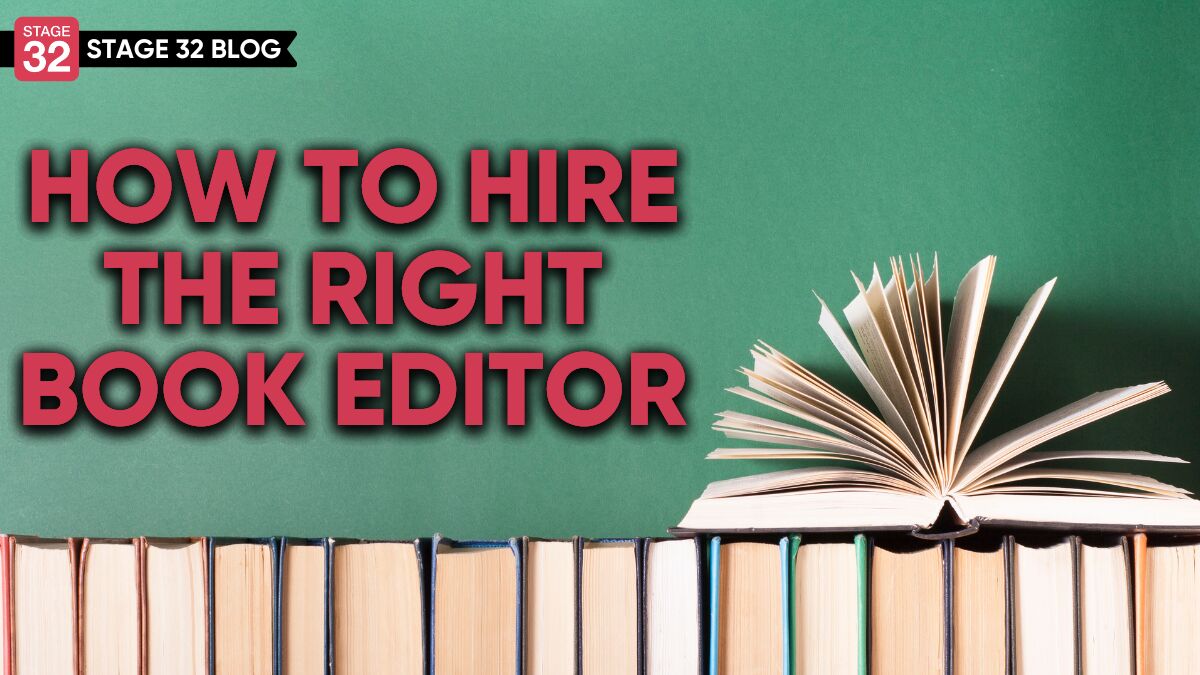How To Hire The Right Book Editor
You’ve spent hundreds of hours pouring into your book or your script. You’re finally finished, and in the midst of your celebration, you realize now it’s time for edits and rewrites. The confetti is short-lived and now you have a decision to make: who are you going to choose for your editor?
If your thoughts drift to one of your friends, family members, or even yourself—you may want to reconsider and make sure you have a professional in your corner. Having a fresh set of eyes from a storytelling expert who also knows how to bring out the best in their writers is the key to taking your story from good to great.
However, not all editors are created equal, and there are many things to take into consideration. Here’s your ultimate guide in finding, selecting, and hiring the right editor for your story.

Personality & Communication Are The Most Important Things
This is perhaps one of the most overlooked components when people are looking for an editor—prioritizing things like time, an all-star client roster, or investment over fit. But the truth is, nothing is more important than selecting an editor who is excited about your project, clicks with you, and delivers notes in a way you understand them.
One strategy to find your perfect fit is to research editors on social media platforms and check out their content. For example, on my TikTok, I provide a lot of training to writers for free. Why? They can see my personality, and they can see my ethos in writing and editing. All of this is a great testing ground to see if they understand me when I speak.
If you cannot understand an editor in their content, you won’t be able to understand them when they’re delivering notes to you. That’s why social media is a great first-step vibe check.
Once you find an editor you like and understand, then you want to ask for a custom sample of their work.
DO NOT—I REPEAT—DO NOT ask for their portfolio.
A portfolio of work has no bearing on how this editor will interact with YOU. Their list of books is also not reflective of their ability to edit for several reasons:
- You don’t know how strong the writer was on the draft they handed in. The book could have been great from the get-go, or that writer could have a completely different style of writing than you do.
- You don’t know how much of the notes the editor suggested, that the author actually implemented. As an editor, I always hope my clients implement the changes I suggest, and I work with them deeply to make sure they have implementation support. However, not all editors do, and whether they do or not, authors can disregard the notes they’re given (especially if they’re self-publishing).
- You don’t know what in the finished book belongs to the editor’s influence or the author’s vision.
- And lastly, just because this editor worked well with another author doesn’t mean they’ll work well with you.
This is why custom samples are non-negotiable.
Some editors offer this and others don’t. For the ones who don’t, extend an offer to pay them their regular rate to edit one chapter for you. If you both feel it’s a fit moving forward, that chapter edit can be applied to a larger package. If you feel it’s not a good fit, it’s still appropriate to pay the editor for their time.
The sample edit will show you how this editor responds to your story, your personality, and if you communicate well together. This will also show you the editor’s knowledge of story and editing firsthand.

Their Ethos & Genre Preferences Matter
If you’re going to collaborate with someone on your book or script, they need to be able to step into your vision of the story. If they cannot see where you’re going, if they cannot feel the characters as real, or if they cannot get excited about your story with you—it’s going to be a very dry, unfulfilling process.
Too often, we talk about story from a sterile, mechanical place. But the truth is, for many writers, their stories choose them. It’s a connection to characters and a world that is so potent, they can’t help but write about it. If your editor cannot jump into that same energy stream with you, you’re in trouble.
Just like there are different storytellers, there are different editors. Do you want an editor who just wants to do the job? Do you want an editor who is obsessed with your story? How committed or emotionally involved do you want your editor to be with your work?
This should be part of the conversation you have before hiring your editor.
Likewise, what genres do they love to read and/or edit? If they love Romance and hate Westerns, and you have a Western with zero romance—it’s probably not the best fit.

What’s The Editor’s Process?
The editor’s process also matters for your work together. Many editors will take your manuscript, make notes, and send it back. You might get a call or two for clarifying questions, and then you’re on your own for implementation. Moreover, many editors also charge to go over revisions (and rightfully so with the extra workload). However, this old-school process can keep the writer in a creative silo, making the process lonely.
However, there are different models.
For example, with my authors, I structure calls throughout the editing process and support them through their implementation. If I find a huge developmental issue in Chapter 5 that changes the entire landscape of the book, I need to be able to tell my author so they can make revisions instead of me spending more time on a storyline that’s going to drastically change. It does the author a disservice. By having a flexible process that’s more collaborative with authors, they’re no longer on the journey alone, and we can work as a team to make the most of their experience.
Likewise, not all editors charge for revisions.
Once you’re clear on the editor you’d like to work with, ask yourself the question, “Will their process work for me? What level of support do I need with implementing notes? Do I want them to go over revisions with me? Do I like working alone? How would I like to receive feedback (all at once or in bits)?”
The more questions you ask upfront regarding how you want to experience the process, the more likely you are to find an editor who’s aligned with your vision.

Common Mistakes Writers Make When Hiring An Editor
There are three big mistakes authors and writers make when they hire an editor: price shopping, finding a fit too late, and writing comparisons. First, let’s talk about price shopping.
1. Pricing is subjective. Industry-standard is a relative term that refers to what’s typical for a service to cost based on the cumulation of the industry’s highs and lows. Some editors will charge $1 per word and some will charge $0.0005 per word. It varies wildly across the industry and the person who sets the price is the editor.
Any individual editor’s pricing does not tell you how good they are at their job (that’s why you pay for the custom samples and make sure your personalities match first). All an editor’s pricing tells you is how THEY value their work. This matters because what an editor charges also dictates the time and attention they can give your project.
An editor who only makes $500 for a 100,000-word book is working for much less than minimum wage. It’s not possible to feed and house themselves in the United States at that rate without having a different income source, a partner, or roommates/family. And if someone is struggling to feed themselves, that affects your book. An editor’s stress levels alone affect their neurochemistry which shifts their brain state when they work on your book. Do you want a cortisol-laden brain working on your masterpiece? That choice is up to you.
Whereas editors who charge more don’t have to take on as many clients and can create premium experiences that cater to the needs of their writers.
Neither is good or bad. But how an editor feels about themselves and the value of their services will show up in the work that they do for you. Again, this is why the custom sample is vital. That is the best way to assess fit.
2. The second place writers make mistakes when hiring an editor is trying to hire an editor two to three months before they want to publish (or waiting until their manuscript is complete). Great editors are often booked in advance. Aim to start your search with about nine months of lead time and get on the editor’s calendar.
It doesn’t matter if your manuscript is finished. If you want a great editor, prioritize your search and find out the lead time your editor needs to serve you best. This way, you’re working in harmony instead of under a time crunch.
3. The third place writers make mistakes when hiring an editor is in seeking out an editor who’s a great writer.
Are some editors great writers? Absolutely. Are they all? Absolutely not!
Editing is its own skill set. It’s not the same as writing. They’re different.
Think about it like this:
Ray Arcel is one of the greatest boxing coaches of all time. He trained 20 world champions in his time. But Ray was never a boxer himself. Despite not having personal ring time experience, he coached exceptional fighters. He not only made sure his boxers were trained properly but he’s reported to have gone above and beyond to keep his fighters in the right mindset. So while he never knocked out a boxing opponent himself, Ray created legends.
The idea that your editor must also be a great writer is sensical but misguided. You don’t need a great writer in your corner. You need a great editor.

Things To Keep In Mind
As you go out to find the editor of your dreams, keep in mind that you’re looking for a person who will be part of your creative partnership team for years to come. Developing a long-term relationship with an editor you trust, who gets you, and who also understands your vision and writing is the dream. You may find some ill-fit matches along the way, but you’re not looking for a metaphorical date. You’re looking for a partnership that will last.
That’s why it’s critical to be intentional about the editor you’re choosing and make sure you’re not in a rush or focusing on getting the cheapest editor you can afford. Find the right person, and then make the rest work.
Let's hear your thoughts in the comments below!
Got an idea for a post? Or have you collaborated with Stage 32 members to create a project? We'd love to hear about it. Email Ashley at blog@stage32.com and let's get your post published!
Please help support your fellow Stage 32ers by sharing this on social. Check out the social media buttons at the top to share on Instagram @stage32 Twitter @stage32 Facebook @stage32 and LinkedIn @stage-32
| How Stage 32 Was An Essential Tool For Making My Short Film! |
| Announcing the 3rd Annual Family Friendly Screenwriting Contest |
Search Stage 32 Blog
There are now 4035 blog posts for you to enjoy. Search them all by tags below.
Acting, Advice, Cinematography, Coffee & Content, Composing, Contests, Distribution, Featured, Filmmaking, Financing, Inspirational, Networking, Producing, Screenwriting, Success Stories, Tips, Trending,Relevant Tags
Recommended Articles

Don't Let the Momentum of November Write Club Die: How to Stay Active Into 2026 & Beyond!
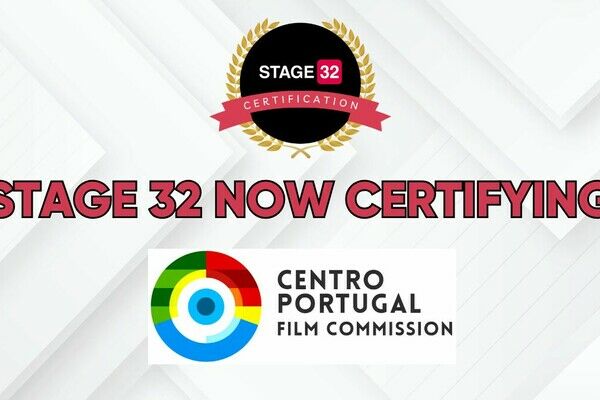
Stage 32 Now Certifying Centro de Portugal Film Commission!

Insider Intel: 2026 Predictions

November Write Club Week #3: How To Make A Strong First Impression When Meeting Execs, Producers, & Reps
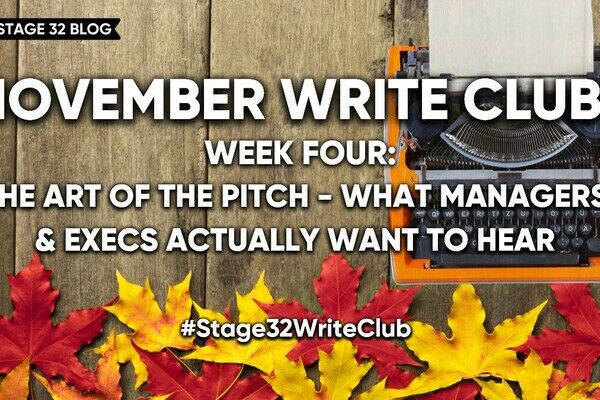
November Write Club Week 4: The Art of the Pitch- What Managers & Execs Actually Want to Hear

Stage 32 Featured at the 43rd Torino Film Festival!

Coffee & Content: Why Your Pitch Needs to Be Human
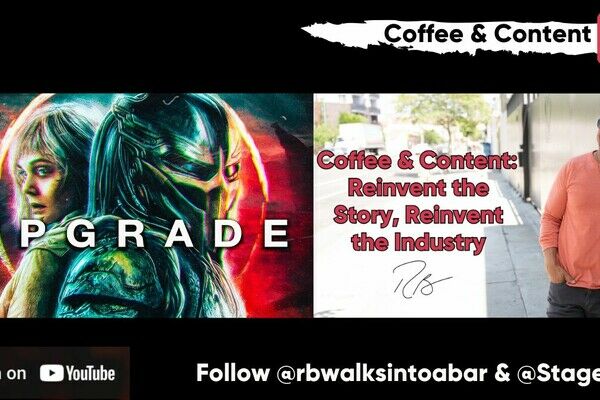
Coffee & Content: Reinvent the Story, Reinvent the Industry
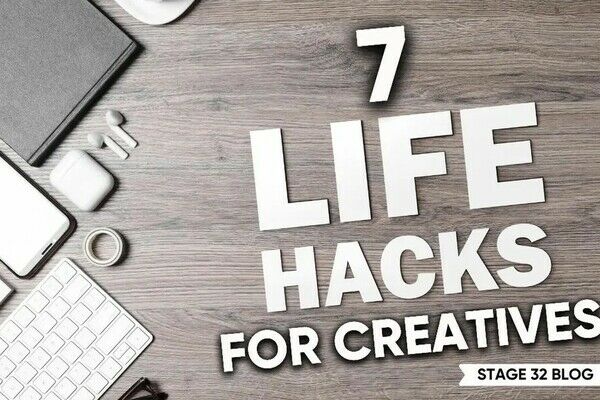
7 Life Hacks For Creatives



